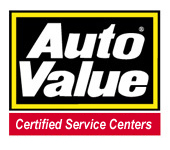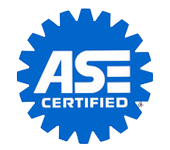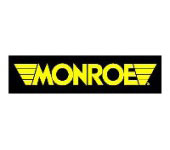
Archive for October 2024In That Case? (Transfer Case Exchange)Posted October 27, 2024 3:13 AMEver wonder how all-wheel-drive or 4-wheel-drive vehicles get the power from the engine to the front and rear wheels? The magic happens in what's called a transfer case. In some all-wheel-drive vehicles, it's sometime called a power take-off unit, or PTU. Inside the transfer case is a set of gears. And to keep those gears meshing smoothly, they have to be lubricated and kept cool. What does that is called transfer case fluid. Depending on your vehicle's type of transfer case, it is filled with either an automatic transmission fluid, a gear oil that's a bit thicker or transfer case fluid designed to be use for your transfer case. As happens with all lubricating fluids, the transfer case fluid has things in it that break down the older they get. They have corrosion inhibitors, detergents and anti-foaming agents that keep the lubricant from getting air bubbles in it. Transfer cases don't have filters in them to clean out impurities. If you don't have your transfer case fluid exchanged for fresh, you risk damage to the case, and that can run into thousands of dollars. So the wise driver makes sure the fluid is changed according to the manufacturer's recommendations. For many vehicles, that is every 30,000 mi/50,000 km, but some require it more frequently. Your vehicle service facility can advise you on what your vehicle's optimal interval is. During the fluid exchange, any metal filings that may have come off are cleaned off of the drain and fill plugs that are usually magnetized to catch the stray metal pieces. If you hear grinding noises coming from under your vehicle or if it is having trouble shifting gears or going in and out of 4-wheel-drive, those could be signs your transfer case needs service. In that case, have our technicians check it out. The best plan of action? Keep your transfer case fluid maintained and it should keep you heading down the road for years to come. Brake World A Non-Starter (Alternator Problems in Cold Weather)Posted October 20, 2024 3:12 AMAs the temperatures dip, we all know there could be problems starting our vehicles. After all, batteries can grow old and not hold a charge as well as when they were newer. Or starters can go bad. But there's one more component to keep an especially sharp eye on during winter: your alternator. The alternator is sort of like a small generator. It sends power out to various parts in your vehicle that need electricity. That includes the battery, which needs charging to keep its power topped off. The alternator creates electricity by taking mechanical energy from the engine and turning it into electricity. It is connected to the engine by belts and pulleys. In cold weather, the material the belt is made from is less flexible than it is in warm weather. That means it may not be turning the pulleys as effectively since it doesn't have the same grip. Also, when it's colder, lubricants, including the engine oil, are a little stiffer and parts just don't move like they do when the weather's warmer. With that extra strain, sometimes it takes the alternator longer to recharge the battery. That, in turn, may leave the battery a little less power to start the engine when it's cold. You may have a warning light on your instrument panel that looks like a battery. If it lights up or if you notice your headlights flickering or not shining quite as brightly as they usually do, it could mean a weak alternator. But it also could be an aging battery, corroded battery terminals, a loose belt or another charging system part. Yes, it's complicated. Pinpointing the cause involves testing the battery and charging system with diagnostic equipment. If it does turn out to be an alternator, there are options besides replacing it with a brand new, original equipment part. Ask your service advisor for recommendations. Obviously, you want your vehicle to start reliably, especially in cold weather. Take care of your charging system and it will take care of you. Brake World What's in a Number? (What Tire Numbers Mean)Posted October 13, 2024 3:14 AMYou've probably never paid much attention to the writing on the sides of your tires, but they contain a wealth of information. There's a long combination of letters and numbers that can tell you a whole lot about what tires your vehicle was designed to be riding on. Let's check out this example found on an SUV: P245/70R17 108T. The first letter, P, means it's intended for passenger vehicles. If there's no letter, it means it's a metric tire. If there's an LT at the beginning or end that means a tire designed for light trucks. Moving on to our example, the 245 shows how wide the tire is in millimeters from sidewall to sidewall. The number that follows in our example, 70, means the height of the tire is 70% of its width. The letter after that in our example, R, describes the type of tire (on this vehicle, radial). Following that is the diameter in inches, in our SUV example, 17 inches. How much load the tires' sidewalls are designed to take is what that next number is all about (108 in our example). The higher the load index, the more weight the sidewalls can take. And the last letter is the speed rating of the tire, in our example, T. The further along in the alphabet that letter is, the higher its speed rating. So now you know what those letters and numbers mean. But why are they important? When you are getting ready to replace those tires, those numbers are telling you what the original equipment was when your vehicle was new. Sticking with the same rated tires is always a good idea. If you don't know what you're doing, trying different sized tires and wheels can cause real issues when it comes to performance and safety, considering all the computerized systems now found on vehicles. When in doubt, consult your service advisor when it comes to buying new tires. He or she knows what those tire numbers and letters mean… and a whole lot more. Brake World No Fountain of Youth (Aging Tires)Posted October 6, 2024 3:10 AMCan you think of anyone who enjoys aging? Wrinkles where you don't want them, gray hair, eyes that won't focus any more, no stamina. Believe it or not, your tires age, too, and they don't get better the older they get. And here's the important thing to know, even if they can still pass a tread depth test, they may simply be too old to be safe Here's the best way to understand this. Have you ever found an old deck of playing cards with a rubber band wrapped around them? Try stretching the rubber band. SNAP! It's all cracked and brittle. And you haven't stressed that rubber one bit since the time you put them in that drawer. Now you know what's happening to your tires. Rubber ages. Just like us, the day we come into the world, we start to go downhill (no pun intended). Oh, engineers are able to make a tire last longer than ever before. But that gas that keeps us alive—oxygen—seems to love to chemically mix with some components in rubber. Oxidation causes rubber to become hard and brittle. The rubber band test. Is there an age test that can tell you when a tire is tool old to roll? Well, not really. They don't all age the same. Hot climates can make tires wear out more quickly. Some experts say a tire can last up to 10 years but should be inspected every year after the age of five. Others say tires should have an expiration date at six years old. Since no one would ever ask a tire its age, how do you know how old one is? Believe it or not, tires made after the year 2000 have a date code stamped on either the inside or the outside of the sidewall. It's a four-digit numbers; the first two tell you the week, the second two tell you the year. So if it has the number 1916, it was made in the 21st week of 2016. Another way to find out if your tires still have enough life in them is to have your vehicle service facility inspect them. They look for signs of age, such as developing cracks in the rubber, the condition of the sidewalls and, of course, that old standby: tread. If it's time to "retire" them, discuss options with your service advisor.
| ||
SearchArchiveNovember 2018 (16)December 2018 (5) January 2019 (5) February 2019 (4) March 2019 (5) April 2019 (4) May 2019 (4) June 2019 (5) July 2019 (4) August 2019 (4) September 2019 (5) October 2019 (4) November 2019 (4) December 2019 (5) January 2020 (5) February 2020 (4) March 2020 (5) April 2020 (4) May 2020 (5) June 2020 (4) July 2020 (4) August 2020 (5) September 2020 (4) October 2020 (4) November 2020 (5) December 2020 (4) January 2021 (6) February 2021 (4) March 2021 (4) April 2021 (4) May 2021 (5) June 2021 (4) July 2021 (4) August 2021 (5) September 2021 (4) October 2021 (5) November 2021 (4) December 2021 (4) January 2022 (6) February 2022 (4) March 2022 (4) April 2022 (4) May 2022 (5) June 2022 (4) July 2022 (5) August 2022 (4) September 2022 (4) October 2022 (5) November 2022 (4) December 2022 (4) January 2023 (5) February 2023 (4) March 2023 (4) April 2023 (5) May 2023 (4) June 2023 (4) July 2023 (5) August 2023 (4) September 2023 (4) October 2023 (5) November 2023 (4) December 2023 (5) January 2024 (5) February 2024 (4) March 2024 (5) April 2024 (4) May 2024 (4) June 2024 (5) July 2024 (4) August 2024 (4) September 2024 (5) October 2024 (4) November 2024 (4) December 2024 (5) January 2025 (4) February 2025 (4) March 2025 (4) | CategoriesFuel Economy (6)Maintenance (8)Brakes (10)Timing Belt (2)Fluids (5)Battery (9)Headlamps (3)Alternator (4)What Customers Should Know (44)Cooling System (5)Service Standards (3)Customer Detective Work (1)Check Engine Light (2)Service Intervals (1)Exhaust (3)Fuel Saving Tip: Slow Down (1)Suspension (1)Shocks & Struts (2)Alignment (3)Winter Prep (2)Oil Change (5)Tires (7)Windshield Wipers (1)Safety (2)Air Conditioning (5)Automotive News (2)Older Vehicles (1)Drive Train (2)Wheel Bearings (1)Steering (3)Cabin Air Filter (1)Transmission (1)Tire Rotation and Balancing (2)TPMS (2)Brake Service (3)Auto Safety (1)Keys to a long lasting vehicle (1)Safe Driving (1)Shocks and Struts (2)Fuel System (1)Tires and Wheels (1)Transfer Case Service (1)Dashboard (1)Inspection (2) | |
What our clients are saying about us
We have established longterm and stable partnerships with various clients thanks to our excellence in solving their automotive needs!
I was able to come off the street and get an oil change without an appointment. Very impressed with the service and quick turn-around time. I will definitely come back for future oil changes.
I went to there today, without an appointment, they took me right in immediately. I also told them that the pump for my window washer was not functioning, and he said he would check it out as well. They did the oil change, replace the oil filter, and the mechanic spent about a half hour under the hood, exposing the tubing that had been broken, and repaired it. The final bill was $39.39, no charge to repair the hose for the windshield wiper. Fantastic and prompt service. I will go to them from now on and recommend them to others!













